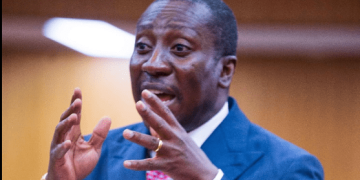Public debt by African countries hit $1.8 billion in 2022. This is according to the 2023 report by the Economic and Social Council on the assessment of progress on regional integration in Africa.
Per the report, African debt since 2010 has increased by 183% further asserting that in September 2023, nine (9) African countries were in debt distress and 12 countries were at high risk of debt distress.
“Soaring import costs and interest rates and greater climate risks will push the African debt-to-GDP ratio to 63.5% in 2023 and 65% in 2024,” added the report.
According to the report, regional integration remains critical in African efforts to achieve productive and sustainable development, asserting the effective implementation of the AfCFTA agreement will determine the extent to which the continent can derive the benefits of free markets and trade integration for the overall benefit of the people on the African continent.
The report further notes that despite trade under the Agreement Establishing the African Continental Free Trade Area having officially started on 1 January 2021, the envisaged changes in intra-African trade are yet to appear.
Intra-African trade as a share of global trade declined from 14.5% in 2021 to 13.7% in 2022.
Over the same period, intra-African exports declined as a percentage of total exports from 18.22% to 17.89%, and intra-African imports declined from 12.81% to 12.09%.
Meanwhile, the African share of global trade remained at less than 3%, driven largely by merchandise trade.
Merchandise imports increased by 15.5% rising from $611.25 billion in 2021 to $706 billion in 2022, and merchandise exports grew by 26.8% from $571.25 billion in 2021 to $724.1 billion in 2022, representing a trade balance surplus of $18.1 billion in 2022, an increase of 145% over 2021.
Those trends are indicative of African countries continuing to trade with the rest of the world more than among themselves.



















































































